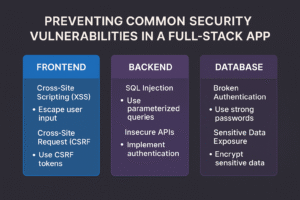In a significant judgment offering relief to taxpayers, the Income Tax Appellate Tribunal (ITAT) Cochin Bench has ruled in favour of a retired Kerala government employee who was penalised ₹2.2 lakh by the Income Tax Department for allegedly misreporting income.
The tribunal found that the woman’s claim of a higher gratuity exemption limit of ₹20 lakh — instead of the permissible ₹10 lakh — was made under a bona fide belief and did not amount to concealment or misrepresentation.
How the Case Began
The retired employee had filed her income tax return (ITR) for FY 2017-18 declaring a gratuity exemption of ₹10 lakh under Section 10(10) of the Income Tax Act. Later, she filed a revised return, increasing the exemption claim to ₹20 lakh, based on a government notification (S.O. 1420(E), dated March 29, 2018) that raised the gratuity exemption ceiling.
However, the Assessing Officer (AO) held that the enhanced exemption applied only to employees retiring on or after March 29, 2018 — whereas the woman had retired earlier in FY 2017-18. Consequently, the AO restricted her exemption to ₹10 lakh, added the excess ₹10 lakh to taxable income, and levied a penalty of ₹2.2 lakh under Section 270A(9) for “misreporting of income.”
Initial Appeal Dismissed
Her first appeal before the Commissioner of Income Tax (Appeals) was dismissed. The CIT(A) stated she had failed to prove reasonable cause for claiming the higher exemption.
Unhappy with this outcome, the retired employee escalated the matter to the ITAT Cochin Bench, arguing that she had acted in good faith and disclosed all relevant details in her ITR and revised return.
ITAT Cochin’s Findings
After reviewing the case (ITA No. 564/COCH/2025, AY 2018-19), the tribunal ruled in favour of the assessee, holding that:
- The assessee had disclosed all facts in both her original and revised returns.
- The higher exemption claim was based on a genuine interpretation of the government notification, not concealment of income.
- Once informed that the higher limit applied prospectively, she accepted the assessment, paid the tax, and did not appeal further.
- Since she complied with the tax order and made no attempt to mislead authorities, she qualified for immunity under Section 270AA, which protects honest taxpayers from penalties for genuine errors.
Accordingly, the ITAT deleted the penalty of ₹2.2 lakh in full, observing that the case involved neither misreporting nor suppression of facts.
Why the Tribunal Ruled in Her Favour
Tax expert Dr. Suresh Surana, Chartered Accountant, explained that the ITAT viewed the error as a bona fide interpretational mistake, not an act of evasion.
“The assessee believed, in good faith, that the March 2018 notification applied to her. Once clarified otherwise, she complied fully — paying the tax without dispute. The Tribunal rightly held that such bona fide claims do not attract penalties under Section 270A,” Surana told ET Wealth Online.
The bench also reaffirmed that making a claim under a mistaken interpretation of law does not constitute “furnishing inaccurate particulars of income.”
Outcome and Implications
The ITAT Cochin’s ruling underscores that taxpayers who disclose all information transparently and comply after assessment cannot be penalised for interpretational errors.
This judgment provides clarity on how the gratuity tax exemption limit applies depending on the retirement date — and reassures honest retirees that good-faith errors will not automatically attract penalties.
Originally published on newsworldstime.com.
Originally published on 24×7-news.com.








